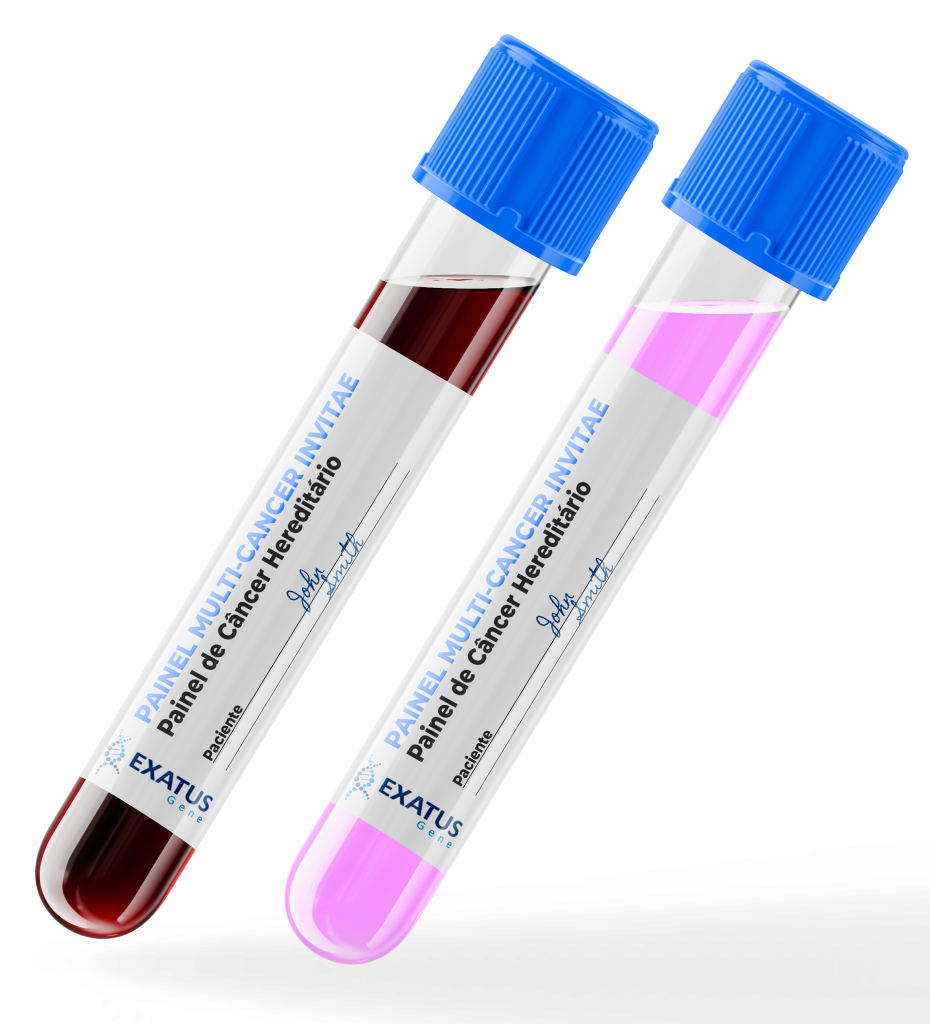
The Invitae Multi-Cancer Panel is a genetic test that analyzes genes associated with hereditary predisposition to cancer development in organs such as the breast, ovary, prostate, intestine, skin, among others.
The analysis of genes offered in the panel helps confirm a clinical diagnosis of cancer predisposition, predict prognosis and disease progression, facilitate early diagnosis, and inform family planning.
The Invitae Multi-Cancer Panel analyzes specific genes to help determine your risk of developing cancer.
Between 5% and 10% of all cancers can be attributed to hereditary genetic variants or changes in a specific gene.¹ Cancer can run in families when individuals carry these variants. If you are concerned about cancer patterns in your family, genetic testing can provide more information about cancer risk.
Garber J. E., Offit K. Hereditary Cancer
Predisposition Syndromes.J. Clin. Oncol.
2005;23:276-292. doi:
10.1200/JCO.2005.10.042
69% of patients at risk for Lynch syndrome were never advised to undergo genetic testing.
Knowledge and update of genetic counseling and counseling and colonoscopic screening amoung individuals at increased risk for Lynch syndrome and their endoscopists from the Family health promotion Project.
2016 Feb;111(2):285-93.
Consider this test in the following cases:
The panel includes:
AIP, ALK, APC, ATM, AXIN2, BAP1, BARD1, BLM, BMPR1A, BRCA1, BRCA2, BRIP1, CDC73, CDH1, CDK4, CDKN1B, CHEK2, CTNNA1, DICER1, EGFR, EPCAM, FH, FLCN, GREM1, HOXB13, KIT, LZTR1, MAX, MBD4, MEN1, MET, MITF, MLH1, MSH2, MSH3, MSH6, MUTYH, NF1, NF2, NTHL1, PALB2, PDGFRA, PMS2, POLD1, POLE, POT1, PRKAR1A, PTCH1, PTEN, RAD51C, RAD51D, RB1, RET, SDHA, SDHAF2, SDHB, SDHC, SDHD, SMAD4, SMARCA4, SMARCB1, SMARCE1, STK11, SUFU, TMEM127, TP53, TSC1, TSC2, VHL
The methodology used for this test is as follows:
Blood: No fasting required.
Saliva: Fasting from liquids and food for 1 hour.
Extracted DNA: Consult.
Up to 21 calendar days
Medical request.

| Type | Description |
| Technique | NGS + CNVs |
| Depth | >100x |
| Coverage | >99% of target regions |
| VuS Resolution | Sanger, MLPA |

Main Office Rua Bento Gonçalves, 59, Room 802 — Centro, Marau, RS — 99150-000
Porto Alegre Office Rua Gomes Jardim, 301 , Room 918/909 — Santana, Porto Alegre, RS — 90620-130